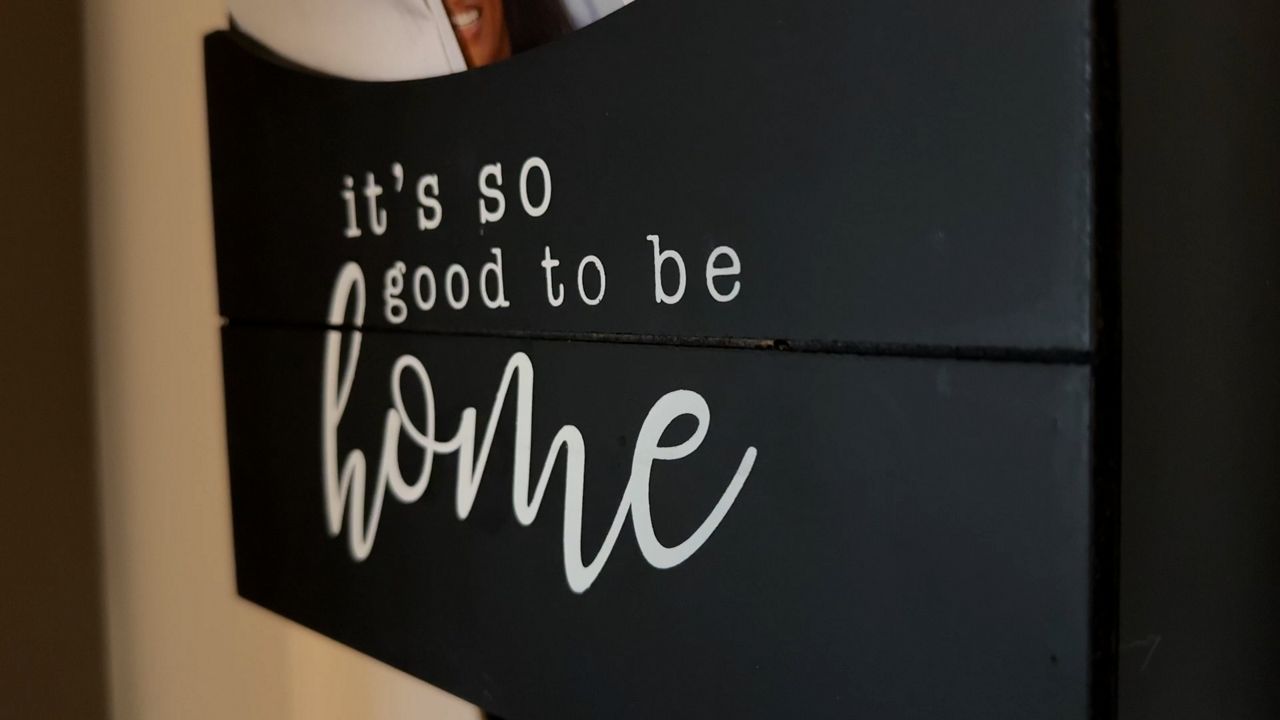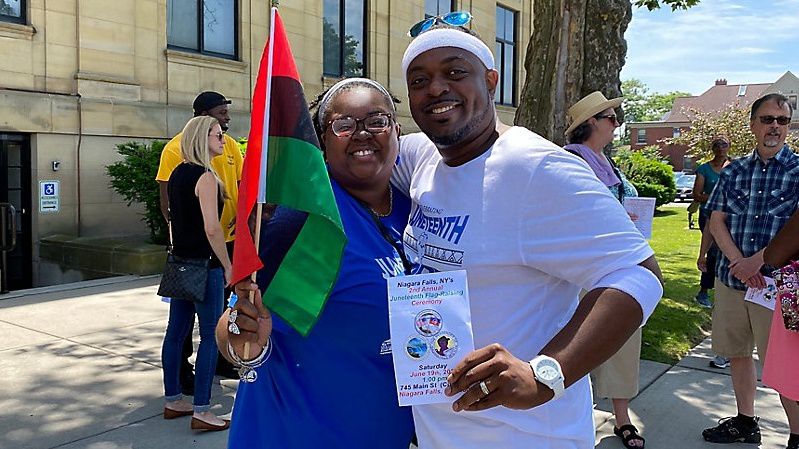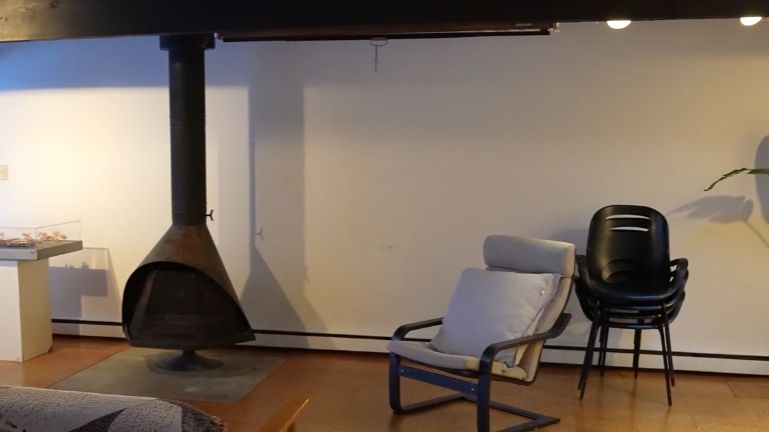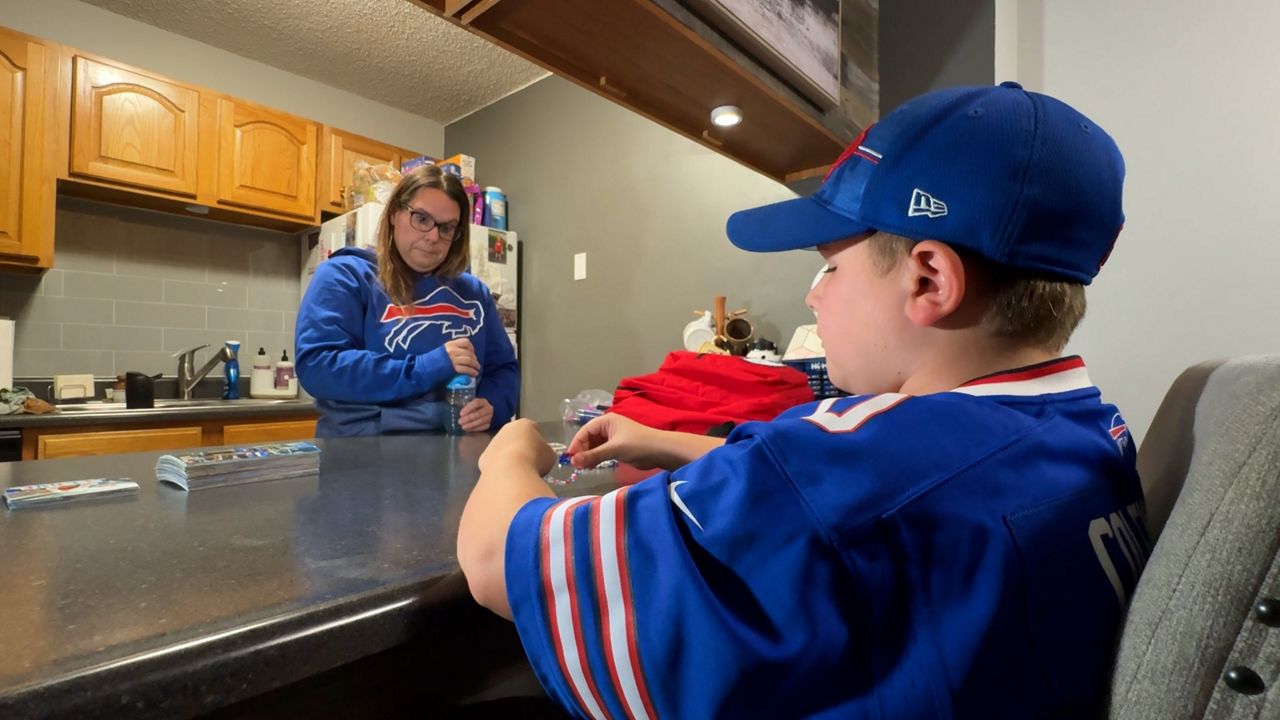BUFFALO, N.Y. — The giving season is here and unfortunately there are a growing number of those in need. Spectrum News 1 is looking at the need for refugees and the surprising impact helping them can have on the entire population.
During the holiday season, a common expression is "goodwill toward man."
Families and friends also try and avoid politics at the dinner table.
The two are crashing in on each other with hundreds of thousands of lives being impacted in the balance. Organizations that help keep the American dream alive for so many are coming to a breaking point.
A team helped set up one of seven apartments for refugee families on a brisk December afternoon. This particular one is for an Afghan family of five who are a fraction of the numbers coming in to round out the Biden administration.
"We are in a situation where it is all hands-on deck," said International Institute of Buffalo executive director Jennifer Rizzo-Choi. "They are trying to send 35,000 resettlement refugees in essentially the space of 60 days. And a small agency like the International Institute of Buffalo is now resettling three times the number of people that we normally do."
The president sets the number of refugees admitted in a fiscal year – Biden’s final determination sits at 125,000. But with an incoming administration that vows to conduct the largest removal operation of undocumented immigrants in American history and bring back the controversial travel ban that barred people from Muslim-majority countries from entering the U.S., there’s fear it will be acted on costing thousands their chance at the American dream.
"The people who are coming here have been vetted by the United Nations to meet the refugee definition," Rizzo-Choi noted. "They've gone through the U.S. government process and have met the U.S. definition of a refugee. These are people who've been waiting for a very long time to get through what is referred to as the vetting process to come here. They didn't just show up and then everyone is put in through an asylum process."
On top of having to hit crunch time resettling people at an accelerated rate, organizations like the institute also are on a mission to show the positive impacts a refugee can have on a community.
"After it factored in all of the amount of money given, invested into refugees that have arrived," Rizzo-Choi said. "So through agencies like ours, through welfare, benefits, all of those things, after you take all of that, and then you look at the gains that they have contributed to our community in our country, the net fiscal benefit of refugees in a 15 year period was $124 billion."
Rizzo-Choi cited a Health and Human Services study.
With a second Trump term on the horizon, the first four years included a four-month suspension of all refugee resettlement programs and several travel bans. With that comes a fear that resources to these organizations and refugees themselves are being curtailed.
The institute and countless others are hoping they can get help with donations from manpower to furniture or even a monetary donation or two in the giving season.
"We want them to be able to call us for help," Rizzo-Choi said. "We want to help them get their first job and get their kids into school. We don't want them hiding in their apartment, afraid to go out because they think someone's going to show up to deport them in a mistake because they think they're out of status and have no papers. What can we do? Well, today we're setting up an apartment for family because we want them to feel welcome. We want them to know that Buffalo wants them, that we're going to help them, that someday they're going to become Americans and they're going to be part of our community. And they'll give back as well."
In the Buffalo-Niagara Metro area alone, $643.3 million were paid in taxes at the state and federal level by immigrants, according to the International Institute of Buffalo. When you think of other areas from Syracuse, Utica and New York City, that contribution compounds and that's more state and federal dollars that help all New Yorkers. The ask from the Institute and other organizations across the state? Help if and where you can.











